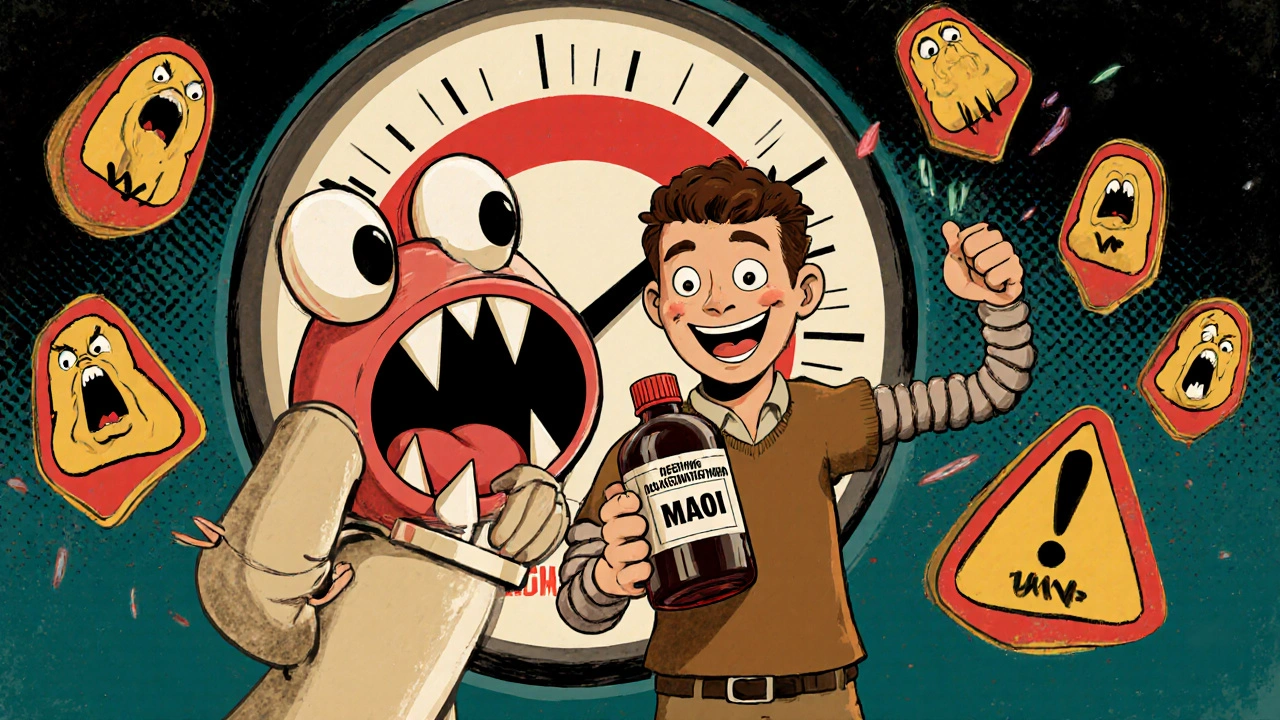Serotonin Syndrome: Causes, Risks, and What to Do If It Happens
When your body gets too much serotonin, a natural chemical that helps regulate mood, sleep, and digestion. Also known as serotonin toxicity, it can turn from a mild annoyance into a life-threatening emergency in hours. This isn’t just about taking too many antidepressants—it’s what happens when you combine them with other drugs, supplements, or even some over-the-counter cold meds. You might not realize you’re at risk until symptoms hit hard: confusion, rapid heartbeat, muscle stiffness, or high fever. It’s rare, but it’s real—and it’s preventable.
Most cases happen because of SSRIs, a common class of antidepressants like sertraline or escitalopram mixed with other serotonin-boosting substances. Think triptans, medications used for migraines, or even herbal supplements like St. John’s wort. Even something as simple as adding a cough syrup with dextromethorphan to your daily pill routine can push serotonin levels over the edge. The problem isn’t always the dose—it’s the combo. That’s why keeping a symptom diary, a simple log of what you take and when symptoms appear can be the difference between catching it early and ending up in the ER.
Some people think if a drug is prescribed or sold as "natural," it’s safe to mix. That’s a dangerous myth. We’ve seen cases where someone took Strattera for ADHD, added a supplement for energy, and woke up with shaking and confusion. Others mixed pain meds with antidepressants and didn’t realize the danger until their muscles locked up. These aren’t isolated stories—they’re warnings. If you’re on any mental health medication, ask your doctor about every other pill, patch, or powder you’re using. Even the ones you think are harmless.
There’s no single test for serotonin syndrome. Doctors look at your meds, your symptoms, and how fast things changed. That’s why knowing the signs matters more than ever. Mild cases might just mean a little rest and stopping the trigger. Severe cases need hospital care—sometimes intensive. The good news? If caught early, most people bounce back fully. The bad news? If you ignore it, it can kill you.
Below, you’ll find real-world guides from people who’ve been there. Some explain how to track drug reactions before they turn dangerous. Others break down which meds to avoid together, like warfarin and herbal supplements, or how statins and exercise can create hidden risks. These aren’t theory pieces—they’re practical, lived experiences that show you exactly what to watch for, what to ask your doctor, and how to stay safe when you’re managing more than one medication at a time.

MAO Inhibitors: Dangerous Interactions with Common Medications
Haig Sandavol Nov 16 12MAO inhibitors can be life-saving for treatment-resistant depression-but mixing them with common medications, supplements, or foods can cause deadly reactions like serotonin syndrome or hypertensive crisis. Know the risks.
More Detail